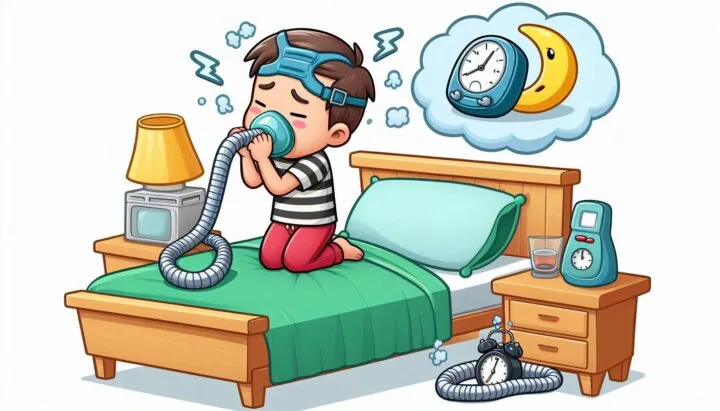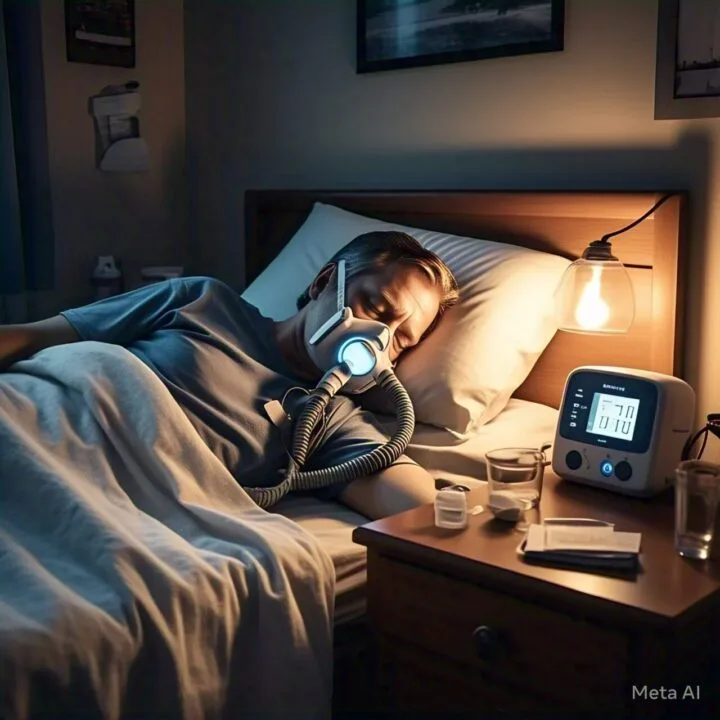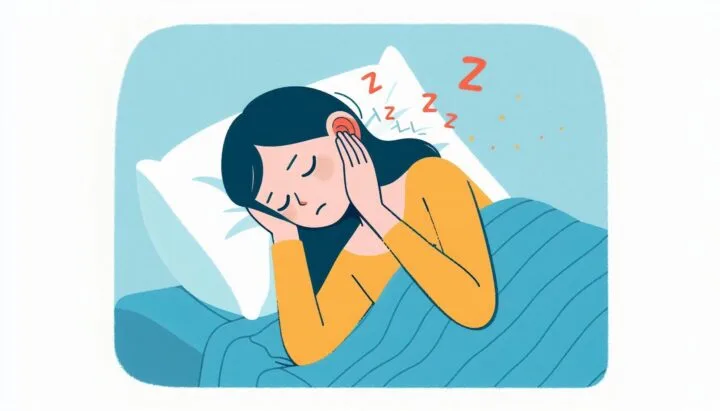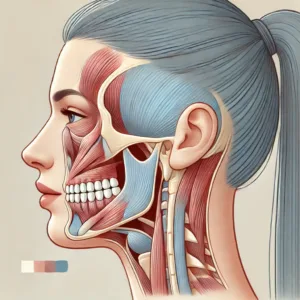How Serious is Sleep Apnea? Understanding the Risks and Impact
Table of Contents

Have you ever wondered just how serious sleep apnea really is? If you or a loved one has been diagnosed with this condition, you might be surprised to learn about its far-reaching effects on health and quality of life. Sleep apnea is more than just loud snoring or feeling tired during the day – it’s a potentially dangerous condition that can have serious consequences if left untreated. In this comprehensive guide, we’ll explore the severity of sleep apnea, its impact on your body and mind, and why seeking treatment is crucial for your overall well-being.
How serious is Sleep Apnea: More Than Just Snoring
Before we dive into the seriousness of sleep apnea, let’s briefly review what it is.
What is Sleep Apnea?
Sleep apnea is like having a faulty pause button on your breathing. It’s a condition where your breathing repeatedly stops and starts during sleep, often without you even realizing it.
Types of Sleep Apnea
There are three main types of sleep apnea:
- Obstructive Sleep Apnea (OSA): The most common type, caused by relaxed throat muscles
- Central Sleep Apnea: Less common, caused by the brain not sending proper signals to breathing muscles
- Complex Sleep Apnea Syndrome: A combination of both OSA and central sleep apnea
The Severity Scale: How Bad is Your Sleep Apnea?
Sleep apnea severity is typically measured using the Apnea-Hypopnea Index (AHI). Think of it as a report card for your sleep breathing.
Mild Sleep Apnea
AHI of 5 to 15 events per hour. It’s like having a small leak in your boat – noticeable, but not immediately dangerous.
Moderate Sleep Apnea
AHI of 15 to 30 events per hour. This is more like a steady stream of water coming into your boat – you’ll need to address it soon.
Severe Sleep Apnea
AHI of 30 or more events per hour. Imagine your boat is now rapidly filling with water – immediate action is necessary.
The Hidden Dangers: Short-Term Effects of Sleep Apnea
Even if you’re not aware of it, sleep apnea can affect your daily life in numerous ways.
Daytime Fatigue: More Than Just Feeling Tired
Constant sleep interruptions lead to poor sleep quality. It’s like trying to drive a car that keeps stalling – you’ll never reach your destination efficiently.
Cognitive Impairment: Your Brain on Sleep Apnea
Lack of quality sleep can affect your memory, concentration, and decision-making skills. It’s as if your brain is trying to operate on low battery power all day.
Mood Changes: The Emotional Toll
Sleep apnea can lead to irritability, depression, and anxiety. Your emotional state becomes as unpredictable as a roller coaster ride.
Long-Term Health Risks: Why Sleep Apnea is a Serious Concern
The true seriousness of sleep apnea becomes apparent when we look at its long-term effects on your health.
Cardiovascular Complications: Your Heart Under Stress
Repeated drops in blood oxygen levels put extra strain on your heart. It’s like forcing your heart to run a marathon every night.
Increased Risk of:
- High blood pressure
- Heart attacks
- Stroke
- Irregular heartbeats
Metabolic Issues: The Silent Saboteur
Sleep apnea can affect your body’s ability to regulate blood sugar and hormones.
Potential Consequences:
- Type 2 diabetes
- Weight gain
- Difficulty losing weight
Respiratory Problems: Beyond Breathing Interruptions
Chronic sleep apnea can lead to more severe respiratory issues over time.
Possible Complications:
- Asthma exacerbation
- Increased risk of pneumonia
- Chronic obstructive pulmonary disease (COPD)
The Domino Effect: How Sleep Apnea Impacts Your Daily Life
The seriousness of sleep apnea extends beyond physical health, affecting various aspects of your daily life.
Work Performance: Career at Risk
Chronic fatigue and cognitive impairment can significantly impact your job performance. It’s like trying to climb the corporate ladder with weights tied to your feet.
Relationship Strain: More Than Just Loud Snoring
Sleep apnea can affect your bed partner’s sleep quality too, potentially straining relationships. It’s not just about the noise – it’s about shared health and well-being.
Safety Concerns: The Road Risk
Daytime sleepiness increases the risk of accidents, especially while driving. It’s like navigating through fog – dangerous for you and others on the road.
Treatment: The Light at the End of the Tunnel
The good news is that sleep apnea is treatable, and addressing it can dramatically improve your quality of life and long-term health.
CPAP Therapy: The Gold Standard
Continuous Positive Airway Pressure (CPAP) machines are like a gentle breeze keeping your airways open all night.
Lifestyle Changes: Small Steps, Big Impact
Weight loss, regular exercise, and avoiding alcohol before bed can make a significant difference. It’s about creating an environment where your body can breathe easily.
Surgical Options: When Other Methods Aren’t Enough
In some cases, surgery might be recommended to address structural issues contributing to sleep apnea.
The Importance of Early Diagnosis and Treatment
Recognizing and treating sleep apnea early can prevent many of its serious complications. It’s like catching a small leak before it floods your entire house.
Warning Signs to Watch For:
- Loud snoring
- Gasping or choking during sleep
- Excessive daytime sleepiness
- Morning headaches
- Difficulty concentrating
Taking Action: Your Next Steps
If you suspect you might have sleep apnea, don’t wait to seek help. Here’s what you can do:
- Talk to your doctor about your symptoms
- Consider a sleep study for proper diagnosis
- Explore treatment options with a sleep specialist
- Make lifestyle changes to support better sleep health
Conclusion
Sleep apnea is indeed a serious condition that can have far-reaching effects on your health and quality of life. From cardiovascular risks to daily functioning impairments, the impact of untreated sleep apnea should not be underestimated. However, with proper diagnosis and treatment, many of these risks can be mitigated, and your quality of life can significantly improve.
Remember, addressing sleep apnea is not just about stopping the snoring or feeling less tired during the day. It’s about protecting your long-term health, improving your daily functioning, and potentially adding years to your life. If you suspect you or a loved one might have sleep apnea, don’t hesitate to seek medical advice. The journey to better sleep and better health starts with that first step of recognition and action.
Take charge of your sleep health today. Your body, mind, and loved ones will thank you for it.
FAQs
- Q: Can sleep apnea go away on its own?
A: While mild cases of sleep apnea may improve with lifestyle changes like weight loss, most cases require treatment. Sleep apnea is typically a chronic condition that doesn’t resolve on its own, especially moderate to severe cases. - Q: Is sleep apnea more serious in children?
A: Sleep apnea can be particularly serious in children as it can affect their growth, cognitive development, and behavior. Even mild sleep apnea in children can have significant impacts, which is why early diagnosis and treatment are crucial. - Q: Can sleep apnea cause permanent brain damage?
A: While sleep apnea doesn’t typically cause permanent brain damage, chronic, untreated sleep apnea can lead to changes in brain matter and function over time. This can affect memory, mood, and cognitive abilities, but many of these effects may be reversible with treatment. - Q: How quickly do the health risks of sleep apnea decrease after starting treatment?
A: Many people notice improvements in symptoms like daytime sleepiness within days or weeks of starting treatment. However, the reduction in long-term health risks may take longer. Studies have shown significant improvements in blood pressure and heart health within 3-6 months of consistent CPAP use. - Q: Can sleep apnea affect my lifespan?
A: Untreated severe sleep apnea has been associated with increased mortality risk. However, proper treatment can significantly reduce this risk. Some studies suggest that effectively treating sleep apnea can potentially add years to your life expectancy.
Meta Keywords: sleep apnea severity, health risks of sleep apnea, sleep apnea treatment, cardiovascular complications, cognitive impairment, CPAP therapy, sleep disorder diagnosis, apnea-hypopnea index, obstructive sleep apnea, central sleep apnea
Citations:
[1] https://www.sleepfoundation.org/sleep-apnea/ahi
[2] https://www.ncbi.nlm.nih.gov/pmc/articles/PMC6140019/
[3] https://my.clevelandclinic.org/health/diseases/8718-sleep-apnea
[4] https://www.hopkinsmedicine.org/health/conditions-and-diseases/obstructive-sleep-apnea
[5] https://www.mayoclinic.org/diseases-conditions/sleep-apnea/symptoms-causes/syc-20377631
[6] https://www.ncbi.nlm.nih.gov/books/NBK459252/
[7] https://qpp.cms.gov/docs/QPP_quality_measure_specifications/CQM-Measures/2024_Measure_277_MIPSCQM.pdf
[8] https://www.healthline.com/health/dehydration-headache













Post Comment